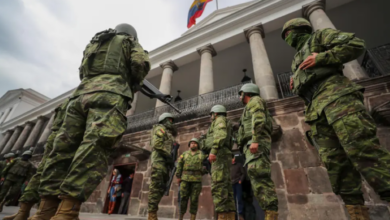Venezuelan Petro: Between doubt and uncertainty, the cryptoactive emerges
The Latin American country aspires to become a global leader by taking innovative advantage of the value of its mineral resources through a cryptocurrency

In full fervor of the cryptocurrencies and, in the midst of a severe economic crisis, on Tuesday, February 20, the Venezuelan government began the Petro presale. Almost a week after the launch, a total of 171,015 certified purchase offers have been registered.
Petro is the first cryptoactive issued on a block chain platform federated by a State. This cryptocurrency could become a spearhead for other countries. The Venezuelan cryptocurrency was created last December and is backed by Venezuelan oil.
The government uses this digital currency as a source of financing at a time when its revenues have fallen due to low production and the reduction in the price of oil. This situation is linked to the financial sanctions imposed by the United States. Therefore, as established in the White Book – document that establishes the Petro’s rules-, 55% of the revenues collected will go to a sovereign fund that the government can use at its convenience to correct the country's debt.
The superintendent of Venezuela's cryptocurrencies, Carlos Vargas, said the government hopes to attract investors from Qatar, Turkey, as well as other Middle Eastern countries, Europe, and, of course, the United States. The White Book also points out that Petro's exchange will be paid according to the price of oil barrel in bolivars – the Venezuelan national currency – to combat the hyperinflation that the country is suffering.
According to the announcement, only 100 million Petros will be issued, equivalent to approximately 6,000 million dollars. Laura Rojas, an expert in digital finance, explained to the BBC, that the Venezuelan state will accept the payment of taxes, obligations, contributions, and national public services in Petro. Additionally, the digital currency may be used to acquire goods or services and it will be exchangeable for fiduciary money or other cryptocurrencies through digital exchange houses.
Differences with other cryptocurrencies
Although Petro has been equated with other cryptocurrencies, there are fundamental differences, for example, with respect to bitcoin. The Petro will be centralized by an intermediary, the government of Venezuela, while the bitcoin is completely decentralized. Also, bitcoin can be generated by anyone with the right equipment, while Petro, according to the White Paper, will only be generated by the government.
The Congress of Venezuela, led by the opposition, ruled that Petro is illegal and warned that it would not be recognized by a new government. The lack of recognition is due to the fact that the Venezuelan Constitution prohibits the commitment of oil reserves without the permission of the legislature.
Under the same scenario, Washington warned the Americans that invest in Petros could violate the financial sanctions imposed to the Maduro government, discouraging future investors from this nation.
Maduro and the petro
However, in a television transmission, the president of the nation said, this Monday February 26, that 171 thousand offers have been made by 87,284 users. Of the previous figure, 3,523 are legally constituted companies and more than 83 thousand are private individuals interested in acquiring the cryptoactive.
Also, Maduro explained that 40.8% of the offers were made in dollars, 33.8% in bitcoins, 18.4% in ethereum, 6.5% in euros, and 0.2% in yuans. According to Caracol Radio, the public offer of another 44 million petros will start on March 20.
A day after the Petro's announcement, Maduro reported the launch of another cryptocurrency backed by gold that will be called 'Petro Oro' (Gold Petro, in English). Two days after Petro's first issue, the new cryptocurrency will come to light.
This new digital currency has been even more controversial. In fact, experts in this type of currencies fear that the cryptocurrencies in question do not attract enough investors due to the poor performance of the local currency, which in the last year has lost 99% of its value against the dollar.
Some cryptocurrency investors such as Sean Walsh, founder of Redwood City Ventures, is skeptical of these assets. Walsh puts the debate on the table by declaring that "before buying a cryptocurrency backed by gold, I would prefer to buy gold directly." Therefore, we will have to wait for the official launch of Petro Oro and the development of Petro to evaluate this risky Venezuelan economic proposal.
Latin American Post | Ana Gabriela Martinez del Angel
Translated from “Petro venezolano: Entre dudas e incertidumbre nace el criptoactivo”





